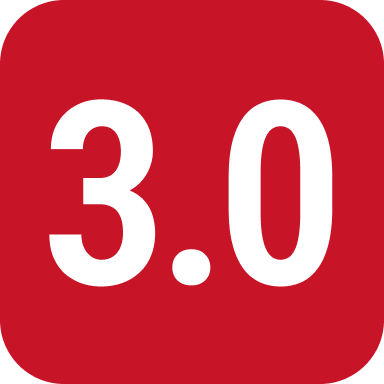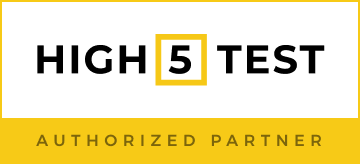Employee strengths can play an immense role in your success while working. They can help fuel you to achieve more, boost your positivity, allow you to feel more confident, and benefit your career in innumerable amount of other ways.
However, a plethora of employees never unlock their full potential and overlook their strengths as a result. They may not believe it is possible to truly know their strengths.

This is not the case. Individuals can unlock and grow upon their strengths. In this article, we will cover what employee strengths are and why they are important.
15 Examples of Employee’s Strengths in the Workplace
Leadership
While you may be an employee and not an executive, this does not mean that being a leader is impossible. Employees use leadership skills all the time. You can help fellow employees that need assistance by encouraging them to discover their strengths.
You can assist with the team’s organization, and even delegate some tasks. All of this would involve using leadership techniques.
Communication skills
Communication is a highly valuable interpersonal skill. You will likely need to communicate with your employer, coworkers, colleagues, and sometimes even your competition.
Individuals are great at communicating adjust their communication style based on their audience. They use many communication channels. And, they also know how to actively listen, not just talk.
Problem-solving
No matter how hard you attempt to avoid issues, you will always encounter some problems at work. When this occurs, you need to have plans in mind for how to combat them. Individuals will use their problem-solving skills when this occurs.
They evaluate the problem, think of potential solutions, and weigh the options. After that, they take the best course of action as quickly as possible.
Adaptability
The workplace is constantly changing, and you as an employee are tasked with adapting to it. Some individuals choose to complain or stagnate.
They use the same strategies over and over again for all circumstances. However, those that can adapt to a changing environment often produce the best products. They constantly re-evaluate the market and their team to see what they can optimize.
Teamwork
It often takes a village to meet a goal or make a product. Therefore, you will need to master the art of teamwork if you wish to maximize your success as an employee.
Teamwork is a fantastic strength to have since it boosts your ability to build relationships, increases trust, and helps the organization achieve more of their goals. Plus, it also reduces conflict and boosts team morale.
Time management
Everyone is given the same amount of hours in a day. With those 24 hours, the best employees use time management skills to optimize what they do daily.
Because of using time management skills, these individuals often accomplish more, stay more productive, and help their entire teams. Time management can also help with task prioritization.
Creativity
Far too few individuals are willing to be creative at work. They tend to utilize commonly used strategies repeatedly because they are ‘safe’ and acceptable, even if they are inauthentic or do not maximize outcomes.
Those that take the risk to be creative often create new, innovative products that truly help customers, and this leads to success for their organization.
Decision-making
Decision-making is traditionally associated with managers, executives, and other company leaders. However, it is also an essential employee strength. When you make the decision whether to take a calculated risk or not, you impact the team immensely.
The same is true of whether or not you help your colleagues, or how you react to problems. In essence, decision-making impacts a multitude of other strengths and is key to being a successful employee.
Organizational skills
Organization is another essential skill that can truly make a positive impact on your entire career. It acts in a way similar to time management. You can become more efficient and productive when you are better organized.
As a result of saving time, you can focus on what matters most to you, thus helping you meet and surpass company goals.
Critical thinking
Critical thinking is a crucial skill for employees. Thinking critically involves challenging the status quo and consistently searching for the best way to approach problems and create products. This skill can help you react to unexpected situations.
Initiative
Great employees know when to stand up and take action. They do not like being idle or watching on the sidelines. Instead, they give leaders honest input and try to take initiative.
This can involve advocating for changes in policy, starting new projects, or giving input on existing projects. It is a fantastic way to show employee engagement at a time when are engaged.
Resilience
During your time as an employee, you will undoubtedly be faced with difficult situations. Even if you adore your job, it may get tough at times. Some of your colleagues may quit or disengage.
However, if you use your resilience, you can overcome those challenging situations, and maybe even maintain a positive attitude. If you do so, you will acquire the reputation of a dependable employee.
Emotional intelligence
Emotional intelligence is a highly important employee skill. It involves understanding people on a much deeper level, communicating with them effectively, and using soft skills like empathy to build long-term bonds. As a result of using emotional intelligence, you can become a much better team player.
Attention to detail
Attention to detail is very important in many careers. This is true even more for junior employees. For instance, if someone does not recognize a small error in the yearly financial report for your organization (like adding an extra 2 zeros at the end of the profit section), this can skew how your company approaches marketing for the entire year.
Conflict resolution
Organizations hate conflict. It brings everyone done, increases negativity, reduces productivity, and offers very little if any benefit to the company.
When an employee is able to mediate and has conflict resolution skills, companies tend to be very impressed. It will not only benefit you but help the entire team get back on track.

2 Real-life Examples of Employee Strengths in the Workspace
1. Attention to detail: an individual was reviewing the financial statement their company put out for their investors before being published. The employee carefully checks the profits reported with the data he has collected over the years.
He notices that the profits do not line up, and contacts a manager to point out this mistake. He specifically notes what the mistake is and how he noticed it. As a result, the manager changes the profit section and gives investors a more accurate profit report.
2. Conflict resolution: Two employees just got into a major fight over who will get the leadership role for a newly established, small team focused on a cybersecurity project. They have different goals and ideas. Both want their idea to be implemented because they believe it best serves the customer.
A third employee intervenes and listens to both of the individuals who are fighting. She finds a way for them to compromise and take the best aspects of each plan to formulate an even better third plan.
15 Examples of Employee Weaknesses
Procrastination
Great employees take action. They do not sit on the sidelines and wait for others to make the decisions and take risks. Procrastination can truly hold you back from achieving the goals you have in mind. It distracts you and can lead to frustration as well. If you want to be a productive and efficient employee, ensure you stay away from procrastination and work through this weakness.
Lack of confidence
For some individuals, there seems to be a very thin line between a lack of confidence (which is a weakness) and humbleness (which can certainly be a strength). Those who lack confidence constantly doubt themselves and take no risks.
Those who are humble are self-aware and understand both their strengths and weaknesses. The lack of confidence can prevent you from reaching your goals, while humbleness does the opposite.
Poor time management
As previously mentioned, everyone has the same 24 hours in a day. If you choose to spend them poorly, constantly get distracted, or simply do not have any scheduling or task prioritization in mind, you will not achieve much during the workday.
Thus, use planners, schedules, and other tools that can assist with your time management if this is your weakness.
Difficulty in public speaking
Public speaking is one of the most common fears for individuals across the globe. Unfortunately, failing to overcome this fear can limit you immensely in the professional field.
Individuals will need to speak publicly when they address customers, bosses, and other employees. Thus, it is very important to start volunteering to speak more often.
Perfectionism
Perfectionism may seem like a strength on the surface. But, in reality, it can also act as a weakness. Individuals who are perfectionists tend to be obsessive.
They spend too much time perfecting certain tasks, which is often inefficient. This can increase negativity and even lead to some mental health troubles long-term.
Impatience
“Patience is a virtue” is often told to children by their parents. The same is true with patience in a work setting. Impatience can lead to someone being overly angry and difficult to work with.
It increases the risk of conflict and decreases the entire team’s ability to achieve their goals. Impatience can make you more likely to quit, and also decreases your ability to get hired by the employer of your dreams.
Inability to delegate
Delegating is seen by some as the job of the company leader or main manager. However, amazing employees often do this as well, and it is extremely beneficial. If you are unable to delegate, you may struggle with nearly any form of leadership during your career. This will limit your opportunities immensely.
Disorganization
Do you want to be efficient, a goal achiever, and a positive individual? If so, being disorganized can truly sabotage your plans. Disorganization can lead to you spending hours on tasks that are either meaningless or simply searching for lost items. Not only is it inefficient, but it could even get your fellow coworkers mad at you.
Resistance to change
Change can be hard. It means abandoning security and trying something new, which is sometimes difficult for people to grasp. However, holding on to the past is not the solution. In fact, it can hurt your success and force your team to abandon their competitive advantage. When the world is changing so quickly, you need to adapt, not resist change.
Poor teamwork
Being independent and individualistic can often be great. However, you need to balance these traits with a willingness to work with your team. After all, few things can be achieved on your own.
Teamwork is, therefore, necessary for you to accomplish overarching goals and to get ahead in your career over the long term.
Lack of assertiveness
Many individuals have a naturally less assertive attitude or personality. However, in some circumstances, not being assertive can be extremely detrimental. If someone is constantly hurting your team or your likelihood of reaching your goals, you should absolutely be assertive. This takes employee confidence and initiative, but it is worth it in the long run.
Difficulty in receiving feedback
Receiving constructive feedback is a crucial part of self-growth. It is how you realize your flaws and strengths, and it allows you to become a better employee. By not receiving feedback well, you are closing your mind off from all criticism. This leads to stagnation and missing out on opportunities to grow.
Tendency to micromanage
Some people love being in charge. And while being a leader and a coach can be immensely beneficial to your entire company, being an employee that micromanages others is not so positive.
Micromanagers tend to lose the trust of their colleagues, which leads to difficulty with teamwork. It can also increase negativity and decrease trust in the workplace.
Inauthenticity
Staying true to yourself is crucial when working. If you abandon your values and principles to please others, you are doing both yourself and others a disservice. If you feel the need to be authentic at work, it may be wise to reconsider where you work.
Inauthenticity can make you feel trapped or silenced, which leads to decreased employee motivation and less employee morale.
Difficulty in prioritizing tasks
Many people want to accomplish a wide array of tasks at work. However, task prioritization is necessary when working. When you struggle immensely with prioritizing tasks, you may find yourself wasting time on frivolous tasks.
2 Real-life Examples of Employee Weaknesses in the Workplace
1. Tendency to micromanage: An employee has been put in charge of a small project. The task is to create a presentation on why a major potential client should work with their organization. He constantly looks over every employee’s shoulder, even though the team consists of just 3 people.
There is no trust, and the coworkers feel uncomfortable. The only task the employee in charge of the project does is watching how others perform their task to ensure they are doing what they are supposed to. He does not contribute anything himself.
2. Difficulty with public speaking: An employee has been tasked with presenting a report to the board of directors. Although she has prepared the report well, she panics every time she must give a report.
This time is no different. She consistently stumbles over her words and eventually says she cannot continue, handing the presentation over to another employee. This hurts her image in the eyes of the board.
How to Identify & Address Your Strengths & Weaknesses as an Employee
Growing your strengths is truly one of the most important steps you could take to boost your career success. However, before you can grow your strengths, you must address them. This involves gaining a deep understanding of your abilities, and also recognizing your weaknesses.
One of the first and most straightforward steps you could take to get this self-growth process started is to take an online strengths test.
Many people struggle with understanding their strengths, and an online test like the HIGH5 or CliftonStrengths can help you get an outside perspective on what your top abilities are. You could also self-evaluate or ask for input from bosses and coworkers.
After you know your strengths and acknowledge them, you can start to work on building them and addressing the flaws in your strength profile. Try using a strength-based approach to self-growth. This involves building upon your current strengths and using them more often as well as in new circumstances.
Take calculated risks and use your strengths outside of your comfort zone. Then, also track metrics like productivity and customer reviews to see if your approach is working.
What Are Some Common Strengths and Weaknesses?
Every individual has a list of unique strengths that are part of their identity. These skills and strengths can help you achieve more in your career, boost your confidence, build new relationships, and far more.
You should try to explore your strengths whenever possible, whether by taking an online assessment, doing self-reflection, asking others, or more.
Some of the most common strengths and weaknesses include:
- Leadership skills. This involves the ability of people to inspire teams, make decisions, communicate well, and generally delegate a team. Managers, leaders, executives, and entrepreneurs often have these skills.
- Communication abilities. This involves speaking clearly and knowing who your audience is. It involves the flexibility to change your speaking style based on that audience and delivering both negative and positive feedback. Finally, it also means active listening.
- Problem-solving. Employees will inevitably encounter some issues during everyday operations, whether it be personal, conflict between other colleagues, or technical issues. Great problem solvers quickly identify those issues and take steps to correct them.
- Organization. Organizational abilities as well as time management are crucially important. They can help save you time and money while avoiding frustration. You can also achieve goals quicker if you are organized.
- Creativity. Many individuals recycle old strategies and apply them to new problems. However, this often results in sub-par outcomes. Creative individuals often innovate and create much better, more authentic products.
- Impulsivity. Impulsivity is a very common weakness, especially for younger employees. They may rush through decision-making and skip to conclusions that may be inaccurate.
- Fear of risk-taking. Reaching your potential as an employee often involves some level of risk. It means being willing to dedicate yourself to your career and standing up for what is right, even when it is tough.
- Disorganization. People who are disorganized tend to get flustered more often and accomplish less tasks, thus decreasing productivity. It can lead to a less cohesive team and decreased company morale.
- Being quick-tempered. Individuals who are easily angered may not do well on a team, and they often increase conflict levels in their organization. This sets everyone back from achieving their goals.
- Low emotional understanding. Being able to connect with others emotionally, empathize with them, and see things from their perspective is key to forming long-term trust with colleagues. Those who cannot do this may struggle with teamwork.


